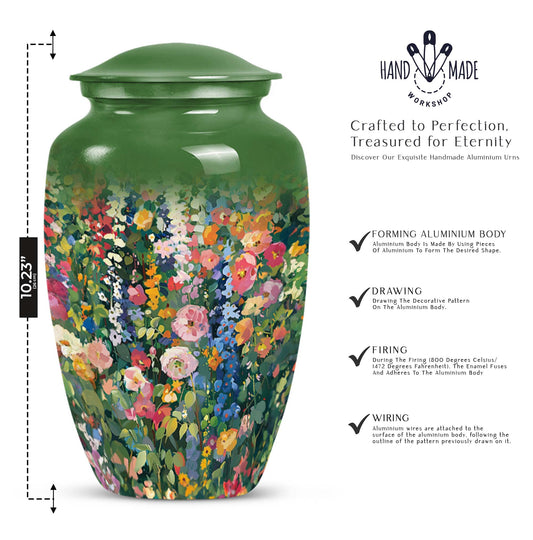Popular Urns
What to Say at A Funeral: Guidance and Examples

Conversating with your family members at a funeral:
Going to a funeral is not an easy, emotionless act; perhaps even more challenging is finding the appropriate words to say to the grieving family. Your silent presence already says a lot, but knowing what to say, and what not to say, may make the difference in providing appropriate support for those mourning the death of a loved one.Here are some guidelines on what to say and what not to say when offering condolences.
What to Say at a Funeral:
1. Say It with Sincerity
Sometimes, the simplest heartfelt words are the most comforting. Let your words be short and simple, such as, "I'm so sorry about your loss," or "My thoughts are with you at this time." Such words are appreciated by all and will come across as solacing.
2. Share a Fond Memory
If you knew the deceased well, a special or humorous story can help comfort the grieving relatives. For example, you may say, "I will never forget how your dad always made everyone feel so welcome. He had a heart of gold." Such personal stories remind them of how their loved one touched people's lives and keeps his memory alive.
3. Provide Comfort
Words of practical or emotional aid can be a big help. Some examples include phrases like: "Please let me know if there's anything I can do," or "I'm here for you if you need someone to talk to." These phrases demonstrate an interest in helping without being intrusive. Make sure your suggestion is sincere and act on it if they accept the offer.
4. Acknowledge Their Grief
Letting family members know it’s okay to grieve is another way to provide comfort. Saying, “It’s okay to feel however you’re feeling right now,” validates their emotions and reassures them that their grief is understood.

What Not to Say at a Funeral
1. Avoid Clichés and Platitudes
While meaning to help, expressions such as, "They're in a better place now," or "Everything happens for a reason," may feel dismissive or painful. Grieving family members are unlikely to find consolation in such comments and believe that their suffering is minimized.
2. Do Not Compare LossesSaying, "I know how you feel; I lost my grandmother too," may seem sympathetic but is really self-centered. Grief is unique to the person experiencing it, and comparisons will always take away from their personal experience.
3. Don't Judge or Offer Advice
Comments such as, "You need to stay strong for your family," or "At least they lived a long life," may appear comforting but actually add undue burden on the bereaved person or diminish their loss.

Do not ask for details of the death, finances, or funeral details unless the family discusses them. Instead, provide them with solace and support.
At last, when speaking to the family members around the funeral, one's words should be empathetic, sensitive, and respectful. But sometimes sharing some true condolences, fond memories, and offering support can help console them at this difficult time. On the other hand, clichés, comparisons, and unsolicited advice may indirectly burden them more. Ultimately, your being there and your kindness are worth much more than any words you might say.
ALSO READ:































































































